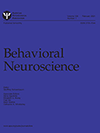IBCCES is the global leader in training and certification for healthcare professionals, educators and corporate partners who work with individuals with autism and other cognitive disorders. Our reach extends to more than 2 million people in all 50 states and over 70 countries around the globe. IBCCES Member Learning Community is provided as a free service to all IBCCES members who have completed one or more of our training and certification programs.
A novel model of obesity prediction: Neurobehaviors as targets for treatment.
 This post was originally published on this site
This post was originally published on this siteObesity is a worldwide epidemic that is on the rise, with approximately 30% of the world population classified as either overweight or obese. The United States has some of the highest rates of obesity, and in most countries in the world, obesity now poses more of a serious health concern than malnutrition. Obesity is a chronic, relapsing disorder that is both preventable and treatable; however, traditional interventions that target eating less and exercising more have low success rates, especially in the long term. Therefore, identifying the neurobehaviors that predict obesity is important to help identify targets to decrease BMI and improve obesity outcomes. Using the Competing Neurobehavioral Decisions System (CNDS) Theory, we hypothesized that individuals with obesity compared to individuals without obesity would display neurobehaviors marked by a hyperactive impulsive system and a hypoactive executive system. To test this hypothesis, we collected data from a battery of self-reported measures and neurocognitive assessments through Amazon Mechanical Turk from n = 178 obese (BMI ≥ 30) and n = 198 nonobese controls who were weight stable for the past 3 months. We found that compared to the nonobese control group, individuals with obesity showed heightened delay discounting (a marker of CNDS imbalance), impaired motivation, poor self-image, decreased affective state, and impaired executive function. Using a Bayesian network approach, we established a neurobehavioral model that predicts obesity with 64.4% accuracy and indicates an imbalance between impulsive and executive neural systems. Results from our study suggest that interventions targeting neurobehaviors may be integral to help improve obesity outcomes. (PsycInfo Database Record (c) 2021 APA, all rights reserved)